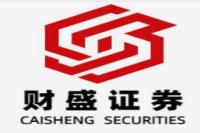AI Agent Revolution: Reshaping Electronics and the Semiconductor Industry
Meta Description: Dive into the burgeoning world of AI Agents, their impact on the electronics industry, semiconductor advancements, and investment opportunities in 2025. Explore the future of AI-powered devices and the key players shaping this technological revolution. Keywords: AI Agent, Semiconductor, Electronics, AI, Advanced Packaging, CoWoS, HBM, 国产替代 (Guochanstidai - Domestic Substitution), GPU, 投资建议 (Touzi Jianyi - Investment Suggestions)
Imagine a world where your phone anticipates your needs, automatically booking flights and ordering groceries. Picture a PC that effortlessly handles complex tasks, coding and reasoning with minimal input from you. Envision smart glasses and earbuds that understand your nuanced commands, acting as seamless extensions of your mind. This isn't science fiction; it's the rapidly approaching reality of AI Agents. This isn't just another tech buzzword; it's a paradigm shift, poised to revolutionize the electronics industry and redefine our relationship with technology. This in-depth analysis explores the burgeoning market of AI Agents, their impact on semiconductor manufacturing, and the exciting investment opportunities they present. We'll delve into the technical specifics, dissect industry trends, and provide actionable insights based on years of experience in the field. Get ready to unlock the secrets of this transformative technology and position yourself for the future of electronics! We’ll examine the role of companies like Nvidia, Microsoft, and even homegrown Chinese players, highlighting their contributions and the potential for growth. Buckle up, because this journey into the heart of AI Agent technology is going to be wild!
AI Agent: The Catalyst for Semiconductor Innovation
The rapid advancement of AI Agents is inextricably linked to the semiconductor industry's ability to create ever-more powerful and energy-efficient chips. The demand for processing power to support these intelligent agents is skyrocketing, driving innovation across the entire semiconductor value chain. This isn't just about faster processors; it's about fundamentally new architectures and technologies.
The integration of AI Agents into everyday devices demands significant advancements in several key areas:
- Advanced Packaging: Technologies like Chip-on-Wafer-on-Substrate (CoWoS) are crucial for integrating high-bandwidth memory (HBM) with GPUs, enabling the massive parallel processing required for complex AI algorithms. The improved performance and power efficiency offered by CoWoS are game-changers in this space.
- High-Bandwidth Memory (HBM): HBM stacks multiple memory dies vertically, drastically increasing bandwidth and reducing latency. This is essential for AI Agents that require rapid access to large datasets. The increasing demand for HBM is driving significant investments in manufacturing capacity.
- Advanced Process Nodes: The relentless pursuit of smaller, faster, and more energy-efficient transistors at advanced process nodes (e.g., 3nm, 5nm) is crucial for powering AI Agents. This race for leading-edge technology is a major driver of innovation within the industry.
The synergy between AI Agent development and semiconductor advancements creates a powerful feedback loop. More powerful semiconductors enable more sophisticated AI Agents, which in turn fuels further demand for advanced semiconductor technologies. This symbiotic relationship is the engine driving this incredible technological leap.
The Rise of Domestic Semiconductor Production (Guochanstidai)
China's commitment to semiconductor self-reliance, often referred to as "Guochanstidai" (国产替代), is significantly impacting the global landscape. This push for domestic semiconductor manufacturing creates both opportunities and challenges. While the immediate focus is on catching up in mature process nodes, the long-term ambition is to compete at the forefront of advanced technologies. This drive is not only creating new domestic players but also attracting significant investments and fostering innovation within the Chinese semiconductor ecosystem. The success of this initiative could reshape the global semiconductor industry, creating a more balanced distribution of manufacturing capabilities. Companies like SMIC (中芯国际) are playing a vital role in this effort, focusing on advanced packaging and process technologies.
AI Agent Applications Across Devices
The applications of AI Agents are incredibly diverse, spanning various electronic devices:
1. Smartphones: Imagine a smartphone that anticipates your needs, proactively suggesting routes, making reservations, or even summarizing your emails. This is the future of smartphone AI Agents. They're not just simple virtual assistants; they're intelligent co-pilots for your daily life.
2. PCs: AI Agents can revolutionize personal computing. They can automate complex tasks, intelligently manage your workflow, and even assist with coding and problem-solving. This will significantly improve productivity and accessibility for users of all skill levels.
3. Wearables (Earbuds & Glasses): AI Agents are poised to transform the way we interact with wearables. Smart earbuds and glasses with enhanced understanding and responsiveness will become more intuitive and seamlessly integrated into our lives. Think hands-free control, real-time translation, and personalized audio experiences.
4. Automotive: AI Agents will play a crucial role in the development of autonomous vehicles. Their ability to process vast amounts of sensor data and make real-time decisions will be fundamental to the safe and efficient operation of self-driving cars.
The seamless integration of AI Agents into these devices will significantly improve user experience, creating a market ripe for disruption and innovation.
Investment Opportunities in the AI Agent Ecosystem
The convergence of AI Agents and semiconductor advancements presents compelling investment opportunities. Companies involved in:
- Advanced Packaging (CoWoS): Companies specializing in advanced packaging technologies, particularly CoWoS, are well-positioned to benefit from the surging demand for high-bandwidth memory integration.
- High-Bandwidth Memory (HBM): Companies involved in the manufacturing and supply of HBM are poised for significant growth as demand for high-performance memory continues to escalate.
- Advanced Process Nodes: Companies at the forefront of advanced process node development will capitalize on the ever-increasing need for powerful and energy-efficient semiconductors.
- AI Chip Design and Manufacturing: Companies designing and manufacturing chips specifically optimized for AI Agent workloads will see substantial growth.
- AI Agent Software and Development: Investing in companies developing the software infrastructure and applications for AI Agents presents significant potential.
Investing in this rapidly growing sector requires careful due diligence and a deep understanding of the technological landscape. However, the potential for significant returns is undeniable.
Frequently Asked Questions (FAQs)
Q1: What is an AI Agent?
A1: An AI Agent is a software program capable of autonomously performing tasks and interacting with its environment. Unlike simple applications, AI Agents can learn, adapt, and make decisions based on their experiences.
Q2: How are AI Agents different from traditional software?
A2: Traditional software follows pre-programmed instructions. AI Agents, on the other hand, use machine learning and artificial intelligence to make decisions and adapt to changing conditions, offering a more dynamic and responsive user experience.
Q3: What are the main challenges in developing AI Agents?
A3: Key challenges include creating robust AI models that can handle unpredictable situations, ensuring data privacy and security, and addressing ethical concerns surrounding AI autonomy. The need for significant computing power to support complex AI algorithms is also a significant hurdle.
Q4: What role does the semiconductor industry play in the development of AI Agents?
A4: The semiconductor industry is fundamental to AI Agent development. The processing power required to run complex AI algorithms necessitates advanced chips with high performance and energy efficiency.
Q5: What are the potential risks associated with investing in the AI Agent market?
A5: Potential risks include technological setbacks, regulatory hurdles, competition, and the overall volatility of the technology sector. Thorough due diligence is crucial before making any investment decisions.
Q6: How can I stay updated on the latest developments in the AI Agent space?
A6: Stay informed by following industry publications, attending relevant conferences and webinars, and monitoring the activities of key players in the semiconductor and AI sectors. Following research reports from reputable financial institutions can provide valuable insight.
Conclusion
The rise of AI Agents is transforming the electronics industry and creating unprecedented opportunities for innovation and investment. The demand for advanced semiconductor technologies is fueling a rapid pace of development, pushing the boundaries of what's possible. This transformation presents significant challenges and exciting opportunities for businesses and investors alike. By understanding the underlying technologies, market trends, and potential risks, we can navigate the complexities of this dynamic landscape and position ourselves for success in the age of AI Agents. The future of technology is intelligent, autonomous, and deeply intertwined with the advancements in semiconductor manufacturing. Embrace the change, stay informed, and be prepared for a future where AI Agents seamlessly integrate into every aspect of our lives.



